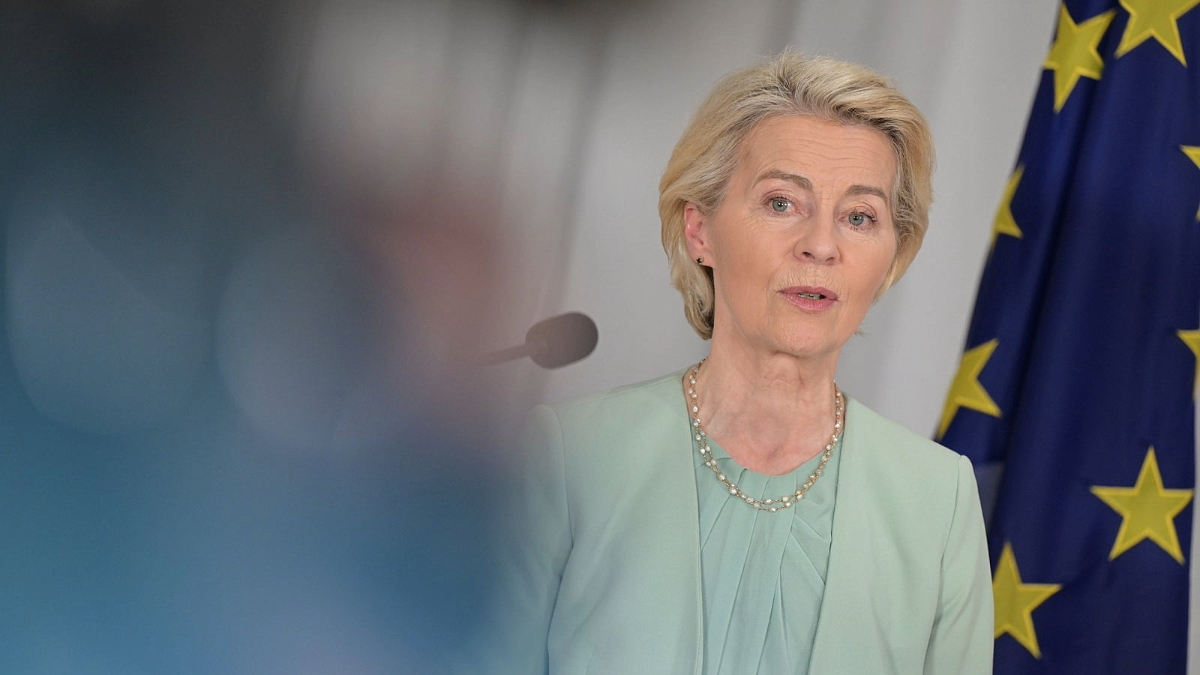AI Hype Is Steering EU Policy Off Course
Kris Shrishak, Abeba Birhane / Nov 17, 2025
European Commission President Ursula von der Leyen. Source
The EU continues to invest in science and scientists through various research programs. But when it comes to AI policy, the European Commission seems to firmly lean on US tech CEOs' views amid the AI bubble.
Earlier this year, Ursula von der Leyen, the President of the European Commission, echoed the claims and speculation of tech CEOs around “AGI” and “superintelligence”. A letter, now signed by more than 200 scientists and scholars, has been sent to the President to retract these unscientific claims.
Policymaking by speculation
These speculations are not mere words. As one of us has previously written, the Commission’s AI Continent plan embeds these ideological speculations into policies. In it, the Commission claims “the next generation of frontier AI models [are] expected to unlock a leap in capabilities, towards Artificial General Intelligence.”
The European Commission has uncritically accepted AI, particularly generative AI, as useful. The Commission's Apply AI strategy takes a leaf out of Big Tech's playbook and imposes AI — regardless of merit — on people through an "AI first" policy where "AI is considered as a potential solution whenever organizations make strategic or policy decisions."
Other policymakers seem equally susceptible to the AI con. Germany’s Federal Minister for Digitalization and Government Modernization, Karsten Wildberger, said, “For the first time, machines surpass humans in what previously made us unique: our intelligence.”
As with von der Leyen, he did not provide any evidence for these claims. But, in this speech given in the context of strengthening Europe’s digital sovereignty, he endorsed Jensen Huang of Nvidia, a tech CEO with a vested interest in promoting AI hype.
The cost of speculation
Speculation-driven policy has direct implications for the taxpayer. The European Commission, like the European Parliament, has its own project to use generative AI. The Commission has informed one of us that its GPT@EC project is estimated to cost about 7 million euros over three years. This project relies on the existing cloud contracts for which the Commission paid nearly €200 million to Amazon Web Services and Microsoft between 2020-2024. But these monetary expenses do not capture the costs of hype in its entirety.
Despite the environmental cost of AI, the EU wants to triple the data centre capacity in the next 5-7 years. One EU country, Ireland, has already been warned by its Environmental Protection Agency that it is not on track to meet emissions reduction targets by 2030. This is a country where data centers already accounted for 22% of Ireland's total electricity consumption in 2024. In the Dublin/Meath area, where a third of Ireland's population lives, 48% of the electricity was used by data centers in 2023.
In addition to the energy and water consumption, these data centers negatively affect the communities in the area. In an attempt to redress the communities that are directly negatively impacted by their data centers, Google and Meta have "donated" millions. This is a small cost that improves Google and Meta's optics more than it does to address the concerns of these communities.
We warn in the letter that the interests and claims of tech CEOs are "manifestly bound with their financial imperatives and not rigorous science." But policymakers have a duty to serve the citizens and not cater to the whims of tech CEOs.
Policymakers should stop peddling in unscientific discourse about "AGI" and "superintelligence." Speculation-based policies have dire costs with downstream impact for your constituents. Such policies do not serve them.
Authors

